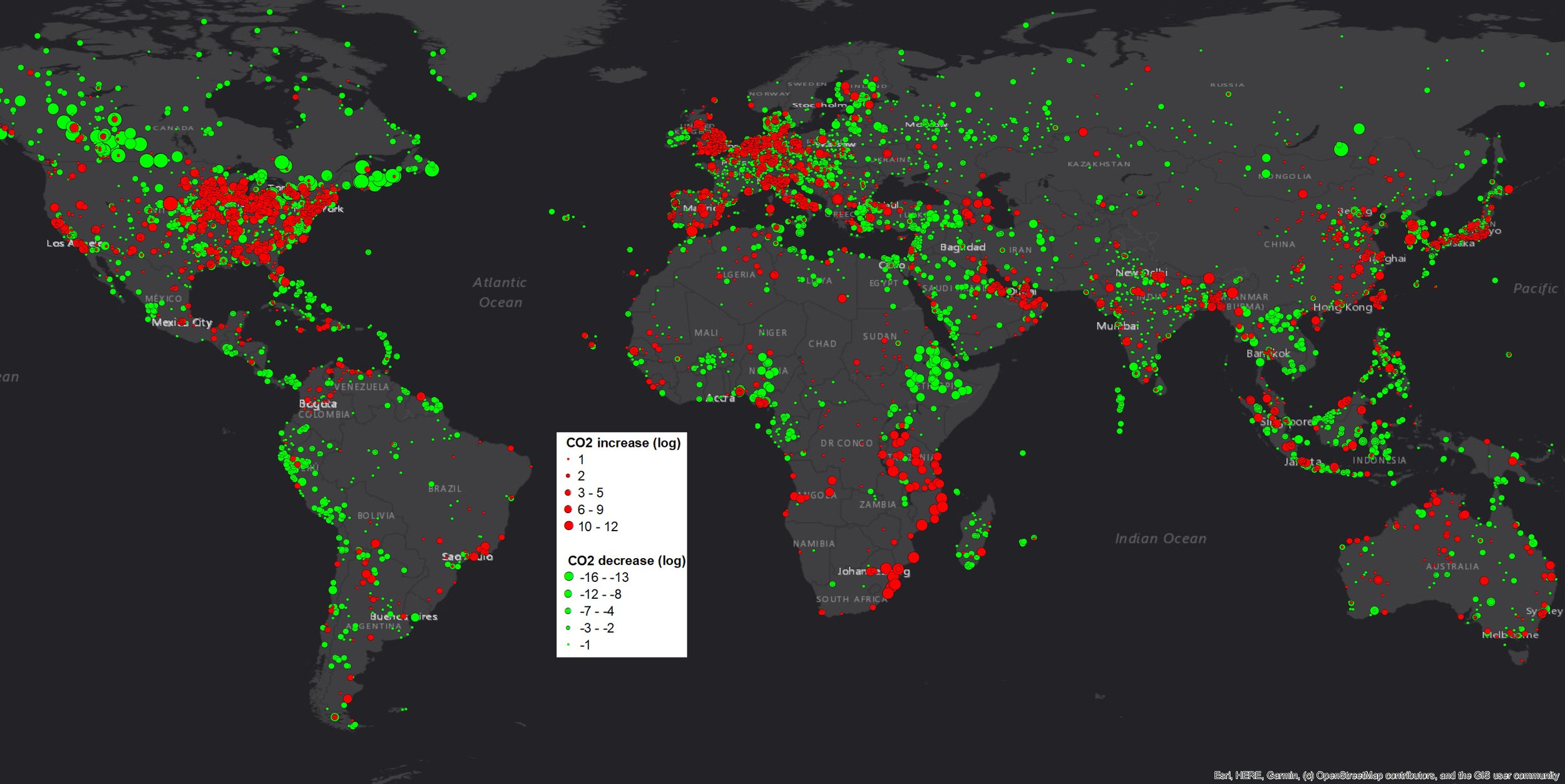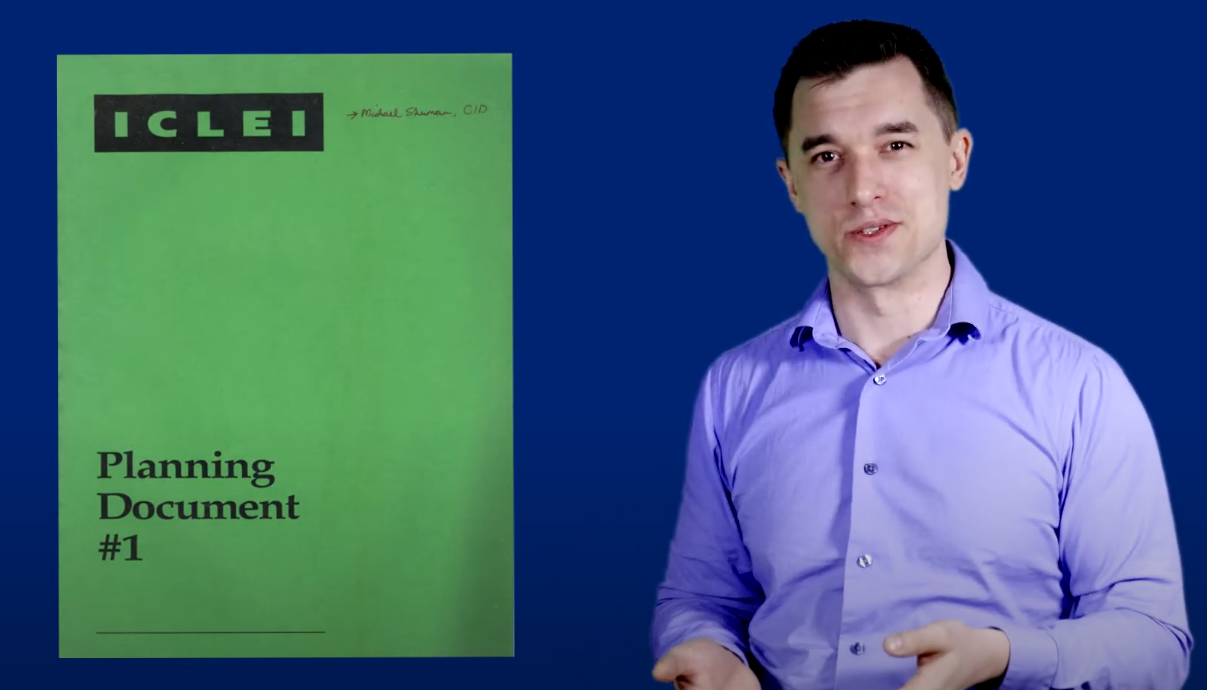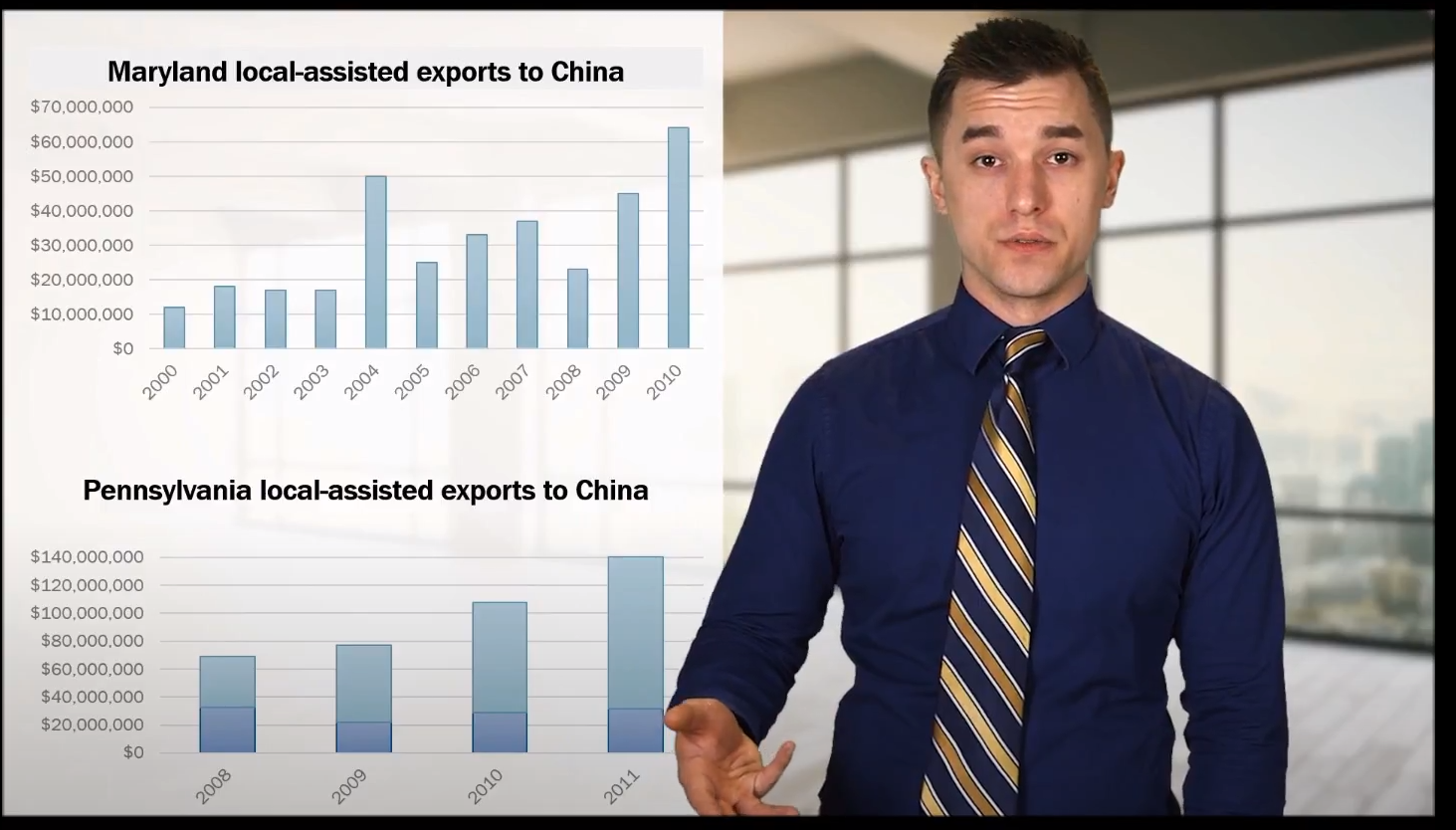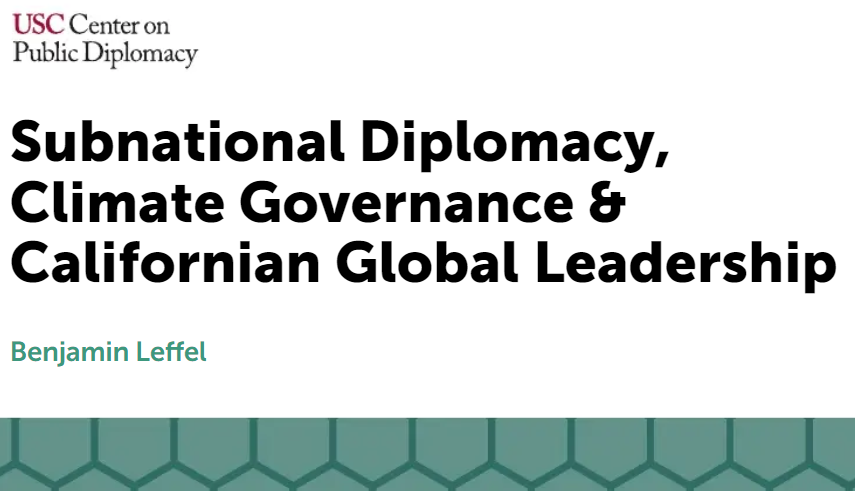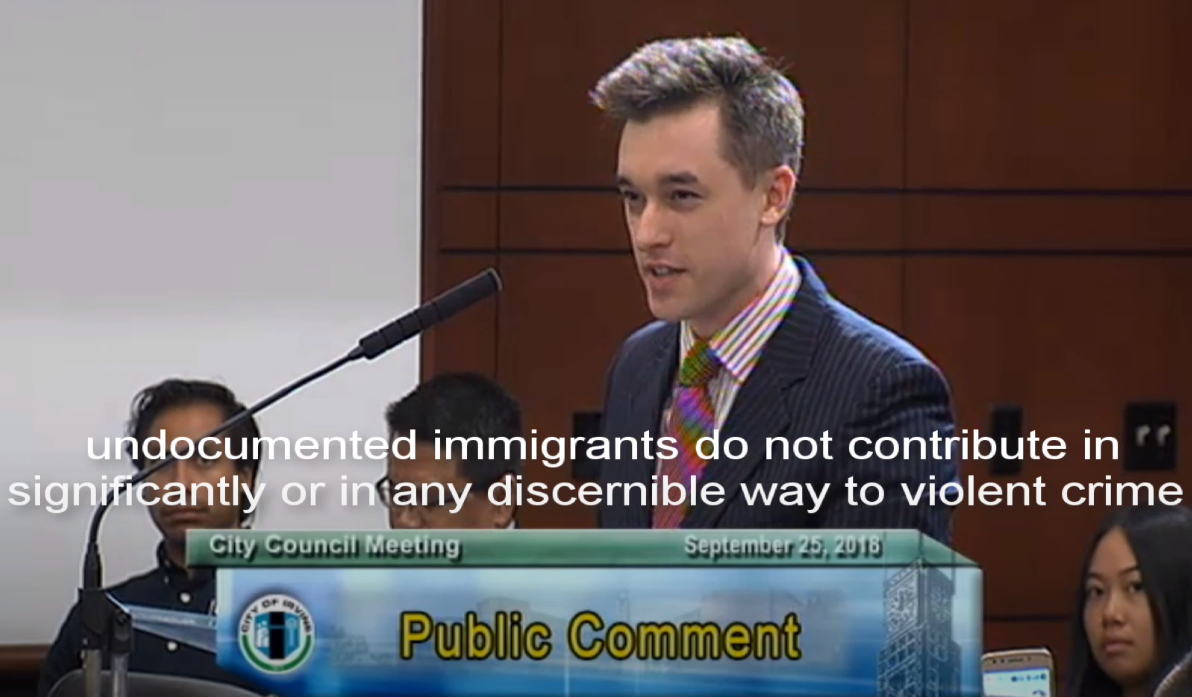Scholar of cities & corporations in global processes: Climate change governance, economy & diplomacy
Assistant Professor
School of Public Policy & Leadership
University of Nevada Las Vegas
PUBLICATIONS (SELECTED)
Benjamin Leffel, Thomas Lyon and Joshua Newell, 2024. “Filling the Climate Governance Gap: Do Corporate Initiatives Matter as Much as State and Local Government Policy? ” Energy Research & Social Science, Volume 109, 103376.
Don Grant, Benjamin Leffel & Evan Johnson, 2023. “Can transnational municipal networks mitigate the carbon pollution of the world’s power plants?” npj Climate Action, vol. 2, no. 38.
Benjamin Leffel, Ben Derudder, Michele Acuto and Jeroen van der Heijden, 2023. “Not so polycentric: The stratified structure & national drivers of transnational municipal networks,” Cities, vol. 143, 104597.
Benjamin Leffel, Helge Marahrens & Arthur S. Alderson, 2022. “Divergence of the world city system from national economies” Global Networks.
Benjamin Leffel, 2022. “Climate consultants and complementarity: Local procurement, green industry and decarbonization in Australia, Singapore, and the United States” Energy Research & Social Science, Volume 88, 102635.
Benjamin Leffel, 2022. “Toward global urban climate mitigation: Linking national and polycentric systems of environmental change,” Sociology of Development, vol. 8, no. 1, 1-27.
Benjamin Leffel, Nikki Tavasoli, Brantley Liddle, Kent Henderson and Sabrina Kiernan, 2022. “Metropolitan air pollution abatement & industrial growth: Global urban panel analysis of PM2.5, PM10, SO2 and NO2” Environmental Sociology. (Data accessible here).
Sarah Bracking and Benjamin Leffel, 2021. “Climate finance governance: fit for purpose?” WIREs Climate Change, May, e709.
Michele Acuto and Benjamin Leffel, 2020. “Understanding the global geography of city networks,” Urban Studies, July, 1-17.
Benjamin Leffel, 2020. “Marine protection as polycentric governance: The PEMSEA Network of Local Governments,” in City Diplomacy.
Benjamin Leffel and Michele Acuto, 2018. “Economic Power Foundations of Cities in Global Governance,” Global Society, vol. 32, no. 1, 281-301.
Benjamin Leffel, 2018. “Animus of the Underling: Theorizing City Diplomacy in a World Society,” The Hague Journal of Diplomacy, vol. 13, no. 4, 502-522.
CONTENTS
DATA
City networks membership dataset
China urban carbon offsets (CDM) datasets
Climate Action Plan adoption for 176 U.S. cities, 2010-2019
IN THE NEWS
ABC: “Clark County's $2 million will buy nearly five dozen new electric Ford Mustangs”
Bloomberg: “US Firms Cut Emissions Most When Government Subsidizes Solutions”
Inside Climate News: A Boutique Hotel Helps Explain the Benefits of Businesses and Government Teaming Up to Conserve Energy
New York Times: “There’s a Super Bowl Extravaganza at Las Vegas Airports, Too”
Las Vegas Review-Journal: “Nevadans are worried about water in 2024, poll finds”
Erb Institute: Decarbonization for hire
Chicago Council on Global Affairs: “Better City Network Data Empowers Climate Action from Below”
Alternative Policy Solutions: “Profit-based climate finance restricts Global South access”
Climate Social Science Network: “Toward global urban climate mitigation
UMich (Video): “New global systems of corporations and cities in climate action: Measurement, mechanisms and trends (Ben Leffel)”
Erb Institute: “Cities and corporations as climate action partners: A public-private symbiosis”
City of Irvine “Dr. Ben Leffel Joins Councilmember Agran’s Team To Work on Climate Action Initiatives”
Advanced Science News, “Climate finance today has greater reach, but more private influence”
Keynote talk, “US 2nd NDC and Multilevel Action Towards Glasgow COP26”
“Dr. Ben Leffel Uses Real-Time Big Data Analytics for Environmental Sociology Course”
White Paper with German Marshall Fund: “It is time to institutionalize subnational diplomacy”
UC Irvine: “Driving global change at the local level”
ENVIRONMENT
Corporate sustainability & multi-level governance
My study “Filling the climate governance gap” shows that corporate decarbonization efforts across the U.S. do in fact matter for facility-level carbon emissions reductions, but not as much as state government financial incentives for commercial energy efficiency. This means that decarbonizing corporate America requires local governments to mobilize new incentives, especially by using Inflation Reduction Act provisions, and for firms use them. Incentives work because they allow firms already spending millions on green upgrades to reduce those costs significantly, expanding those efforts and ultimately reducing more carbon emissions—good for both environmental performance and for business. The study also shows that corporate decarbonization is greatest when all forces act together: Corporate GHGs drop the most when the firm implement decarbonization initiatives, when cities adopt climate action plans and when states adopt more regulations and financial incentives, as shown in the below Figure. See the link to the study below. The study was also selected as a finalist for the inaugural Berkeley Haas Sustainable Business Research Prize, which prepared this research brief for business leaders and policymakers.
Drivers of corporate decarbonization (Figure 3 from article)
Mapping Climate-Active Corporations
I have developed a methodology for identifying & locating the facilities belonging to sustainability-dedicated (CDP-disclosing) corporations for any city in the world. I show applications of this method for different cities, including Irvine, California and San Diego, California. This method grew from my original Climate Lab at UC Irvine, which produced the “Irvine Corporate Sustainability Report”, and was further refined during my work with Irvine City Councilmember Larry Agran and during my work at University of Michigan with Tom Lyon and Josh Newell. This mapping is relevant to the increasing trend of municipal-corporate climate collaboration (see my thought piece on the subject), practices which are being harnessed by the City-Business Climate Alliance.
Irvine (CA) climate-active (CDP-disclosing) businesses
Transnational Municipal Networks:
In my article “Can transnational municipal networks mitigate the carbon pollution of the world’s power plants?” shows that for the world’s power plants, (1) GHG reductions (2009-2018) are occurring in cities with memberships in climate networks (ICLEI, C40 Cities, etc.), (2) this effect is particularly strong in developing countries, and (3) that even national climate policy efforts do not have this decarbonizing effect
San Diego (CA) climate-active (CDP-disclosing) businesses
Global Urban Climate Change Mitigation
Cities are the world’s largest contributors of greenhouse gas emissions driving climate change, but also hold the key to reducing those emissions. My research pinpoints two mechanisms driving urban emissions reduction on a global-scale:
In my article “Toward global urban climate mitigation”, I link greenhouse gas emissions reductions in 330 cities (48 countries) to local environmental management consultancies (energy performance contracting) & memberships in environmental city networks like ICLEI.
In my article “Climate Consultants and Complementarity”, I show how Energy Performance Contracts purchased by cities are a key mechanism by which urban GHG emissions are reduced, particularly via building energy efficiency improvements.
Environmental Consultancies
Climate Finance
My climate finance database focuses on the most granular levels of observation: The firm- and city-levels. My emissions trading data accounts for over 500,000 EU Emissions trading system transactions at the firm-to-firm and the city-to-city level, allowing for a full mapping of the “carbon market.” I also maintain a collaborative research agreement with the Cities Climate Finance Leadership Alliance (created by the UN Sec Gen, secretariat located in Climate Policy Initiative), whereby I’ve obtained data on European Investment Bank’s direct urban climate loans and all green bond allocations globally. See this and other reports in the below database:
Animation: Julian C. Evans created the below animation of location-based ETS transaction over time using my data within his Net2Blend program in Blender. Each green line represents a city-to-city carbon credit transaction between firms.
Mapping Tools to Detect Environmental Racism
EDUCATIONAL VIDEOS
How energy efficiency actually works
ECONOMY & GLOBAL GOVERNANCE OF CITIES
World economy of cities
Cities have diverged from nations in the world economy, as we show in our article in Global Networks. We show this via a “world city hierarchy” metric, the largest existing metric for city power in the world economy, measured via inter-city connections as the corporate HQ-branch ties of all corporations over $10M in revenue. The data for over 12,000 cities is accessible here. The visualization on the right shows how just 4% of the world’s cities (green) connect the rest of the world economy (red) together. Data science artist Dr. Kirell Benzi was inspired to create a 3D visualization of these connections (bottom left), as well as an abstract art piece titled ‘Globalization’ (bottom right). This provides a fully relational metric for city connectivity in the world economy.
TMNs as black nodes (in circular layout), cities as white nodes, and city-TMN membership as gray ties. Cities with only one TMN membership (the vast majority of cities) fall outside the ring of TMNs, while cities with two or more are inside the ring, and at the center, we see the powerful minority with the most memberships.
Global governance of cities
While there is no United Nations for cities, the closest equivalent is the collective landscape of transnational municipal networks (TMNs), or formalized networks of city governments tackling issues from climate change to poverty alleviation, from C40 to ICLEI to UCLG. My paper in Cities (“Not so polycentric”) uses the largest existing database of cities and TMN memberships (publicly accessible here) and finds that a powerful minority of cities have the most representation in global governance via multiple concurrent TMN memberships. Specifically, the same 4% of cities that structurally tie the world economy together also have the most representation (memberships) in these networks, including on climate change issues. These cities use multiple concurrent memberships in TMNs to act as policy paragons, setting agendas and diffusing their innovations throughout the global urban governance landscape. This means that contrary to much research suggesting this landscape is "polycentric" (decentralized across multiple centers of power, or more equal), we show that it is in fact not so polycentric, but is highly centralized and stratified. This is illustrated in a single image (right).
At the national-level, we find that more democratic nations house cities with greater representation in global governance (TMN memberships), suggesting civil liberties are an important enabling condition for city participation, while authoritarian regimes restrict participation. Further, nations ratifying more international environmental treaties house cities with more TMN memberships, particularly in climate-focused networks, suggesting that bottom-up participation in world affairs is not filling the "governance gap" of national inaction, but instead is enabled by national leadership, or is complementary to national action.
The map (below) visualizes our data, with each network shown as inter-city linkages (memberships) between the network secretariat city and member cities, each network with a different color.
CITY DIPLOMACY
Subnational Diplomacy Office | City & State Diplomacy Act
The permanent establishment of a “Subnational Diplomacy Office” in the U.S. Department of State is long overdue, which the City & State Diplomacy Act (H.R. 3571) called for but did not fully pass Congress. Together with Reta Jo Lewis and the German Marshall Fund of the United States, we brought together Los Angeles Mayor Eric Garcetti and Congressman Ted Lieu on this subject and later convened a “Meeting of the minds on subnational diplomacy” with experts across sectors, all to chart a path toward modernizing U.S. foreign policy from the bottom-up. The result was the below-linked white paper published by GMF.
Center for Innovative Diplomacy
The Center for Innovative Diplomacy (CID) was a network of over 6,000 U.S. local officials and activists fighting to end the arms race, reallocate defense spending back to economically ailing American cities, establish sanctuary cities for refugees from embattled Central American cities, establish Nuclear Free Zones, divest from Apartheid South Africa, and environmental advocacy that led directly to the creation of ICLEI - Local Govenrments for Sustainability, the largest existing global environmental city network today. Led by Michael H. Shuman and former Irvine, CA Mayor Larry Agran, CID’s activities are documented through the Bulletin of Municipal Foreign Policy and other documents now available in the CID Digital Archive.
ICLEI - Local Governments for Sustainability
I speak here on the story of how collaboration between UC Irvine (Nobel Prize winner Sherwood Rowland) and the City Irvine led to the creation of ICLEI - Local Governments for Sustainability, and became the largest environmental organization of cities on the planet. I digitized the founding documents telling this story in the below archive, for which ICLEI named me their Honorary Historian.
Declassified documents: US locales in Cold War foreign policy
In the early 1990s, attorney Michael H. Shuman used a MacArthur Foundation Grant to place mass Freedom of Information Act requests to the U.S. federal government, requesting declassification of all documents relating to U.S. local government involvement in foreign affairs. The result was this archive: A large amount of declassified documents from the Departments of State, Defense, Commerce, Transportation and more.
U.S.-CHINA RELATIONS
Emerging subnational trade
U.S. state governments establish Foreign Trade Offices in other countries including China. Read my below study measuring how much they allow local business to penetrate the China export market, or watch my above video on it.
https://www.youtube.com/watch?v=mCUrQEec0GE
U.S.-China Barometer
https://www.youtube.com/watch?v=Ihs0Dajy0Jo&feature=youtu.be
The U.S.-China Barometer is a statistical overview of U.S.-China relations that Prof. John Graham and I put together, covering most major socio-economic areas of import. Watch the video above or download the PowerPoint below.
Subnational Diplomacy & Climate Governance
https://www.youtube.com/watch?v=vus6xUyXwfU&
PUBLIC ENGAGEMENT
Op-Eds
Chicago Council on Global Affairs: “Better City Network Data Empowers Climate Action from Below”
“It Is Time for the United States to Institutionalize Subnational Diplomacy” The German Marshall Fund of the United States
“Paralysis of nations is empowering cities” The Hill
“Is China Actually Stealing American Jobs and Wealth?” Harvard Business Review
“Irvine can lead fight on climate change, by transitioning to solar,” Orange County Register
“California sanctuary cities bill is humane and effective,” The Hill
Local climate leadership
I have advocated for urban and corporate climate leadership as the keynote at the Barcelona Centre for International Affairs climate summit (left) and through activism in the City of Irvine (right)
Corporate accountability
I spoke to ABC on on Elon Musk’s The Boring Company flouting environmental regulations leading to several employees suffering chemical burns and denying accountability
Sanctuary cities are good governance
Evidence-based policy is good policy. Sanctuary cities for undocumented immigrants increase safety, not the other way around. See my Op-Ed with Criminologist Charis Kubrin in The Hill “California sanctuary cities bill is humane and effective,” for more.
National climate leadership depends upon cities & companies
In my talks at Climate Week 2020, I discuss how the U.S. can increase national carbon reduction commitments by incorporating commitments from subnational actors (city governments and companies).
My Mentors & Inspirations
Richard V. Knight
Economist and scholar of global cities, who advised cities across Europe and the U.S. on using knowledge-based economic development to compete in the globalized economy. His vision of globalization bestowing new responsibilities on cities was cited in the Bulletin of Municipal Foreign Policy, which fueled the “municipal foreign policy movement” in the 1980s.
Chad Alger
Professor Chad Alger was a scholar of city diplomacy at Ohio State University, who helped the former Irvine Center for Innovative Diplomacy by serving on the Bulletin of Municipal Foreign Policy editorial board. When doing my undergraduate senior thesis on international sister city relationships at Otterbein University, I sought Chad’s wisdom on global cities at nearby OSU. He shared with me his work—insights on how city participation in global governance called for conceiving of democracy as occurring beyond sovereign nations.
Tom Lyon
Reta Jo Lewis
Lawyer, diplomat and businesswoman Reta Jo Lewis is a leading practitioner of subnational diplomacy. She brought Nelson Mandela on his tour of the U.S. after being freed from prison, with many on that tour being American mayors. She was in 2010 appointed by U.S. Secretary of State Hillary Clinton to serve as the first Special Representative for Global Intergovernmental Affairs, the first federal office for subnational diplomacy. She continues work in this vein at the German Marshall Fund of the United States.
Larry Agran & Michael H. Shuman
Former Irvine Mayor Larry Agran and attorney Michael H. Shuman were responsible for launching the 1980’s Center for Innovative Diplomacy, which grew to a network of over 6,000 U.S. local officials and activists, intervening in American foreign policy, from nuclear nonproliferation to divestment from Apartheid South Africa to the banning of CFCs. They led the “municipal foreign policy movement,” for which their Center’s flagship publication, Bulletin of Municipal Foreign Policy, was a beacon to local officials across the country in harnessing city power for global good.
Professor Thomas P. Lyon’s expertise on corporate sustainability, from greenwashing to Corporate Political Responsibility to (in particular) the impact of local policy conditions on carbon performance brought me to my postdoc at the University of Michigan’s Erb Institute for Global Sustainable Enterprise. His mentorship allowed me to bridge my studies of urban climate action to corporate sustainability.
David A. Smith
Professor of Sociology David Smith’s work on global economic connections between the world’s cities advanced a “relational” understanding of world cities, where these connections form a new unique fabric and with important global power structures. This work brought me to University of California Irvine, where Dave served as my doctoral advisor.
David J. Frank
Professor of Sociology David J. Frank’s work on global institutions that shape policy norms had a strong positive influence on my doctoral research at University of California Irvine. Understanding global flows of knowledge, normative policy models and the multi-level processes through his work granted my work new clarity on cities as diplomatic actors and as participants in global environmental governance.
Josh Newell & the Urban Sustainability Research Group
Professor Joshua Newell and his Urban Sustainability Research Group (USRG) provided a strong collaborative atmosphere propelling my postdoc research at University of Michigan, from local impacts on corporate sustainability to climate justice in Indigenous communities.


